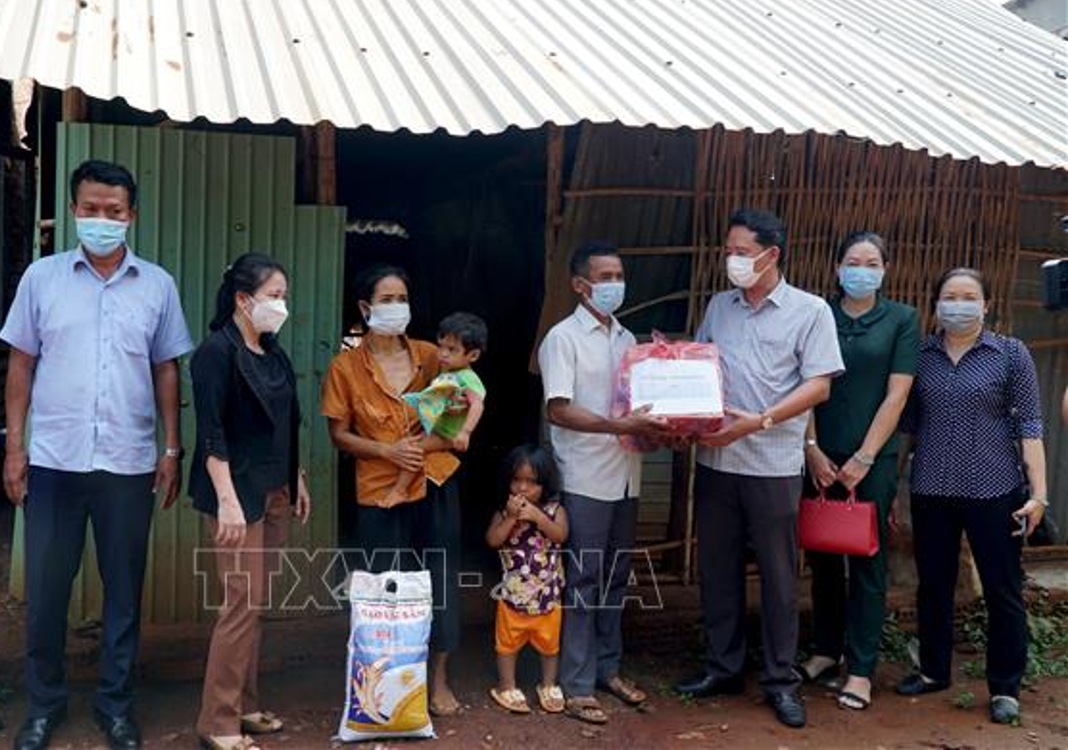HCMC – Up to 88% of households in Vietnam suffered negative impacts from the Covid-19 pandemic, such as job losses, a temporary break from work and reduced working hours, according to the latest report of the United Nations Development Program (UNDP).
The “Rapid Assessment of the Covid-19 Socioeconomic Impact on Vulnerable Households in Vietnam” report, which was released on September 24, showed that reduced working hours was the most common impact, experienced by 80% of households in July 2021. Meanwhile, an involuntary, temporary break from work was experienced by 46% of households.
Among the sectors, a significantly higher percentage of households in tourism and related services, including restaurants, hotels and passenger transportation, suffered a higher impact than the rest. Those in manufacturing and trading too faced a similar situation.
In July 2021, 63.5% of all households experienced an income drop of 30% or more from the pre-pandemic period. Tourism, restaurants, hotels and passenger transportation were the hardest hit.
Besides the impact on employment, mental health has also been an urgent emerging issue as lockdowns have been widespread and prolonged.
Two-thirds of households worry about the impact of Covid-19. Mental health problems were wide ranging, from being worried once a day or all day to having trouble falling asleep, not being able to relax and becoming easily annoyed or irritable and feeling depressed.
Female household heads suffered a higher incidence of mental health problems than male household heads. The survey also found that mental problems were disproportionately experienced by migrants living in small, over-crowded accommodation.
Half of the households had to reduce the amount of food served per meal, and 17.7% of households reduced the number of meals per day. A related problem was the difficulty in shopping for necessities which was experienced by 48.7% of households.
Disruption of supply as a result of the Covid-19 outbreak and lockdowns were the main impediments to accessing necessities.
Food shortages were reported by vulnerable households, including those laid off for months, especially migrants. Households with small children reported the most severe conditions.
According to the report, cutting expenditures were the most common measure employed by affected households.
Most of the expenditure cuts were related to food, with 71% of affected households cutting food expenses. The second essential item for which spending was most commonly reduced was electricity usage (37.6% of affected households).
Including deferred payments, nearly 40% of affected households relied on borrowing to minimize spending cuts. Most borrowers relied on friends as the most important source of loans, while family members were hard to reach during the pandemic.
Qualitative research found that borrowing was becoming increasingly difficult when all members of the network were hit hard.
Another third of affected households used their savings. Among these, more than half had to start using their savings since April 2021 when the fourth wave of the Covid-19 outbreak began and had no more savings to use in August 2021.
Amid these difficulties, nine out of ten respondents said they had not received support, while 82.7% of respondents reported needing assistance.
Among those who have not yet received support, one-third reported difficulties accessing the support application, especially in urban areas. The main obstacle was the absence of guidance from local officials, with 13.5% of households reporting that local officials offered no concrete help or guidance
UNDP suggested that until a large proportion of the population is vaccinated and community immunity is reached, vulnerable households would continue to face considerable challenges due to social distancing measures, especially in big cities.
The fast spread of the pandemic and its impact on the economy and society requires that comprehensive measures be used to combat it and to promote a robust, sustainable and inclusive recovery.
With regard to the reopening strategy, a phased approach should be employed to reduce pressure on the healthcare system, thus ensuring a sustainable recovery.









